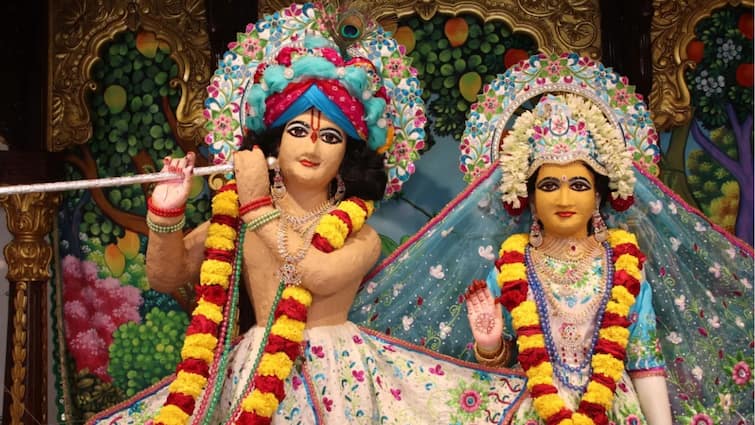Following Friday’s Jummah prayers, major Bangladeshi cities including Dhaka and Chattogram witnessed large gatherings of Islamist groups. Hardliners from radical outfits such as Hefazat-e-Islam and Intifada Bangladesh demanded a ban on the International Society for Krishna Consciousness (ISKCON), describing it as an “extremist Hindutva organisation.”
The demand coincides with a High Court plea, in which Bangladesh’s interim administration under Muhammad Yunus described ISKCON as a “religious fundamentalist organisation” in its response to a writ petition seeking the group’s ban. This development follows a series of attacks on Hindu temples and ISKCON centres, and the imprisonment of Krishna Das Prabhu – a former ISKCON member who advocated better treatment of minorities – after the fall of the Sheikh Hasina government in August 2024.
While Yunus’s administration has dismissed reports of murders and sexual assaults targeting minorities as politically motivated, observers note that post-Hasina Bangladesh has drifted closer to Islamabad, with Islamist groups expanding their influence under apparent state protection.
Massive Rallies In Dhaka And Chattogram
On Friday, Intifada Bangladesh outlined six demands during its rally outside Dhaka’s Baitul Mukarram National Mosque – one of which was the immediate banning of ISKCON, along with investigations and legal action against the group.
Anti-India terrorist and al-Qaida affiliate Ansarullah Bangla Team (ABT) chief, Jasimuddin Rahmani, said, “ISKCON is not a Hindu organisation. It is an extremist organisation created by Jews,” according to Dhaka-based daily Desh Rupantor.
“They are committing one crime after another. Banning ISKCON is the demand of the hour,” added Rahmani, who was released by the Yunus regime days after it assumed power in August 2024.
Ahmed Rafique of Intifada Bangladesh alleged that when an imam spoke out against ISKCON, “he was abducted, tied in chains, and beaten,” while authorities remained silent. “The state is more concerned about what the West, America, leftists, or foreign embassies will say than about what Allah will say,” Rafique said during the rally in Dhaka.
In Chattogram, Hefazat-e-Islam held a rally at the north gate of Anderkilla Shahi Jame Mosque, also demanding a “ban on ISKCON.”
“Just as the Awami League has been banned for its crimes and senior army officers have been put on trial, ISKCON as an extremist organisation must also be brought under the law,” an unnamed speaker at the Chattogram rally was quoted as saying by The Business Standard.
Another speaker added, “We call on the government to immediately declare this terrorist organisation banned. Banning ISKCON is the only way to preserve peace and communal harmony in the country.”
Hefazat Leaders Call ISKCON ‘Agent Of India’
Addressing another gathering in Hathazari, Chattogram District, Ashraf Ali Nizampuri, central joint secretary general of Hefazat-e-Islam and Hathazari Madrasa Muhaddis, alleged that “the extremist Hindutva ISKCON acts as an agent of India, engaged in subversive activities against Muslims.”
He further claimed that ISKCON had “built one establishment after another across the country in the name of temples, following Israeli methods, and oppressed weaker Sanatan community members.” Nizampuri alleged that ISKCON had used its connections with “a neighbouring state’s high commission” to gain backing from sections of the administration, bureaucracy, and intelligence agencies to sustain its “Hindutva activities.”
ISKCON Under Scrutiny After Hasina’s Fall
The protests come amid rising hostility towards ISKCON since the collapse of the Hasina government in August 2024. Several temples and centres have been vandalised, while Krishna Das Prabhu, a leading advocate for the Hindu minority, remains in prison.
Islamist groups have accused ISKCON of “land grabbing, money laundering, and involvement in extremist activities.” In January, the Bangladesh Financial Intelligence Unit (BFIU) froze the bank accounts of 17 ISKCON members, including former leader Chinmoy Krishna Das Brahmachari, over alleged money laundering.
ISKCON’s Legacy And The Growing Islamist Influence
Contrary to the accusations, ISKCON has been active in Bangladesh since the 1970s, providing humanitarian aid across religious lines. Its Food for Life programme fed millions after the 1971 Liberation War and during recurring floods. The organisation also runs schools, orphanages, old-age homes, and free medical camps for underprivileged communities.
The persecution of ISKCON, alongside escalating attacks on Hindu and other minority groups, underscores the growing influence of Islamist factions in Bangladesh. Analysts say these groups increasingly shape the policies of the Yunus-led administration, which remains dismissive of rising sectarian violence and minority persecution.


